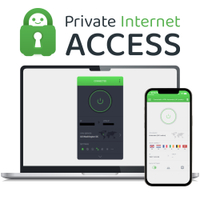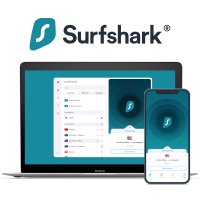The best Linux VPN
Quality Linux VPNs are few and far between – here are the very best

A VPN is an essential tool for those looking to stay private and anonymous online, and this is as true for a Linux user as it is for any other device. As an increasing number of users switch to Linux for its security benefits, only the best Linux VPNs are ensuring that they support the platform.
At Tom's Guide, we test the best VPNs regularly, and we've been doing so for over a decade now. Here, I've rounded up the top 5 VPNs for Linux after comparing dozens of providers for privacy, speed, ease of use, unblocking capabilities, and whether or not there's a GUI.
Read on to know everything about the best VPNs for Linux to protect your device, but if you're in a hurry, here are my top 3 picks right now.
Best Linux VPNs in 2025 at a glance
1. Private Internet Access: the best Linux VPN overall
Private Internet Access offers a very configurable Linux VPN app with a GUI, and boasts the largest fleet of servers that I've seen in my testing. It's also very secure, thanks to open-source apps and a court-verified no-logs policy, which you can use across unlimited devices. Plus, it's just around $2-a-month with a 30-day money-back guarantee makes the deal even sweeter.
2. Surfshark: the fastest Linux VPN with a GUI
Surfshark rocks a fully functional GUI and is overall easier to use than PIA. It also has unlimited simultaneous connections, lightning-fast speeds, and excellent security. It's ideal for streaming fans, too, with great unblocking capabilities. Surfshark offers unbeatable value for money at less than $2.50 per month, and even has a 30-day money-back guarantee lets you test it out risk-free.
3. ExpressVPN: the best of the rest
ExpressVPN might not offer a GUI right off the bat, but it does have a browser extension with an intuitive GUI. It's got rock-solid security straight out the box, serious streaming credentials, and class-leading customer support. While it is on the pricier side, it does offer 3 months of extra protection on a 12-month subscription. You'll also get a 30-day money-back guarantee to trial it risk-free before committing.
Best VPNs for Linux in 2025
Why you can trust Tom's Guide
The best Linux VPN overall

1. Private Internet Access
The very best for Linux
Number of servers: 20,000+ | Server locations: 100+ in 84 countries | Maximum devices supported: Unlimited | Linux GUI: Yes
✔️ You want a GUI on Linux. PIA is one of the few VPNs to come with a graphical user interface (GUI) on Linux devices – some top providers like ExpressVPN don’t.
✔️ You want a VPN that prioritizes privacy. PIA has proven its no-logs policy in court on two occasions, and all its apps are completely open-source.
✔️ You're a bargain hunter. Priced at around $2 a month, PIA is ridiculously cheap and yet delivers many high-end features one would normally associate with premium VPNs.
❌ You want blazing speeds. While PIA isn't sluggish by any stretch of the imagination, NordVPN and Surfshark are admittedly better picks for speed.
❌ You want a VPN that's easy to use. The highly configurable PIA has a lot to offer to techies, but beginners might find it difficult to wrap their heads around the apps.
Private Internet Access boasts a large fleet of servers, open-source apps, and a very configurable Linux interface, which will be a delight for tech experts. With unlimited simultaneous connections at one of the most attractive prices I've seen, there's plenty of value on offer, too, and you can try it risk-free with a 30-day money-back guarantee.
Private Internet Access (PIA) really is the best VPN for Linux devices, thanks to simple apps with an easy-to-use GUI (graphical user interface) rather than a CLI (command-line interface). Plus, PIA supports more Linux distros than most VPNs on the market, and you can easily find a compatible PIA app for Ubuntu, Mint, Debian, Fedora, and Arch.
Another reason PIA tops my charts is its focus on security. Alongside security features like split tunneling and ad-blocking, PIA is also one of the very few providers to have proven its no-logs policy in court twice. Next, all its apps, including the Linux VPN app, are 100% open source, meaning experts can take a look at its code and find vulnerabilities if they can.
PIA’s massive fleet of over 20,000 servers is one of the largest there is, meaning you’ll be able to find a nearby server, no matter where you are on the map. Even better, every single one of these servers is optimized for P2P traffic, making PIA a force to reckon with for torrenting on your Linux. It solidifies its place as one of the best torrenting VPNs with features such as port forwarding and anonymous payment options (Bitcoin).
The good news keeps coming as PIA is also among the best cheap VPNs, with its multi-year plan priced at around the $2-a-month mark. It further improves its value for money (not that it needed to) by offering unlimited simultaneous connections. This means you can protect all your devices (Linux, Windows, Mac, Android, iOS, etc.) with just a single PIA account.
It’s not all work and no play for PIA, as it comes with dedicated streaming servers, allowing you access to popular streaming platforms like Netflix, BBC iPlayer, Disney Plus, and Amazon Prime Video on your Linux. It’s worth noting that while PIA previously failed to unblock the Aussie streaming platform 10Play, that’s no longer the case; it now unblocks everything, everywhere, and sits among the best streaming VPNs.
If I had to find a fault with PIA, I'd say it's not one of the fastest VPNs around. In practice, though, speeds of 360 Mbps are quick enough for everything you’ll need the VPN for on your Linux. Still, it’s hard to recommend it to speed obsessives over the likes of Surfshark and NordVPN that boast almost thrice PIA’s speeds.
All in all, PIA is, hands down, the most well-rounded VPN for Linux I’ve tried, courtesy of its super-secure apps with a dedicated GUI, limitless configuration, unlimited simultaneous connections, and some of the most pocket-friendly prices you’ll find. Put it to the test with a 30-day money-back guarantee and see for yourself.
Feature | Comments | Rating |
|---|---|---|
Design | Lots of customization options can overwhelm those new to VPNs | ⭐⭐⭐ |
Ease of use | A haven for tech experts, but beginners will have a lot of understanding to do | ⭐⭐⭐ |
Performance | Below-average speeds, and NordVPN and Surfshark are much faster | ⭐⭐⭐ |
Unblocking | Access to all popular streaming sites from everywhere around the world | ⭐⭐⭐⭐ |
Security and privacy | Rock-solid encryption, open-source apps, and a no-logs policy that has been proven in court twice | ⭐⭐⭐⭐⭐ |
Customer support | 24/7 customer support with a rich knowledge hub | ⭐⭐⭐⭐ |
Price | On par with Surfshark as the best budget Linux VPN | ⭐⭐⭐⭐⭐ |
The fastest Linux VPN with a GUI
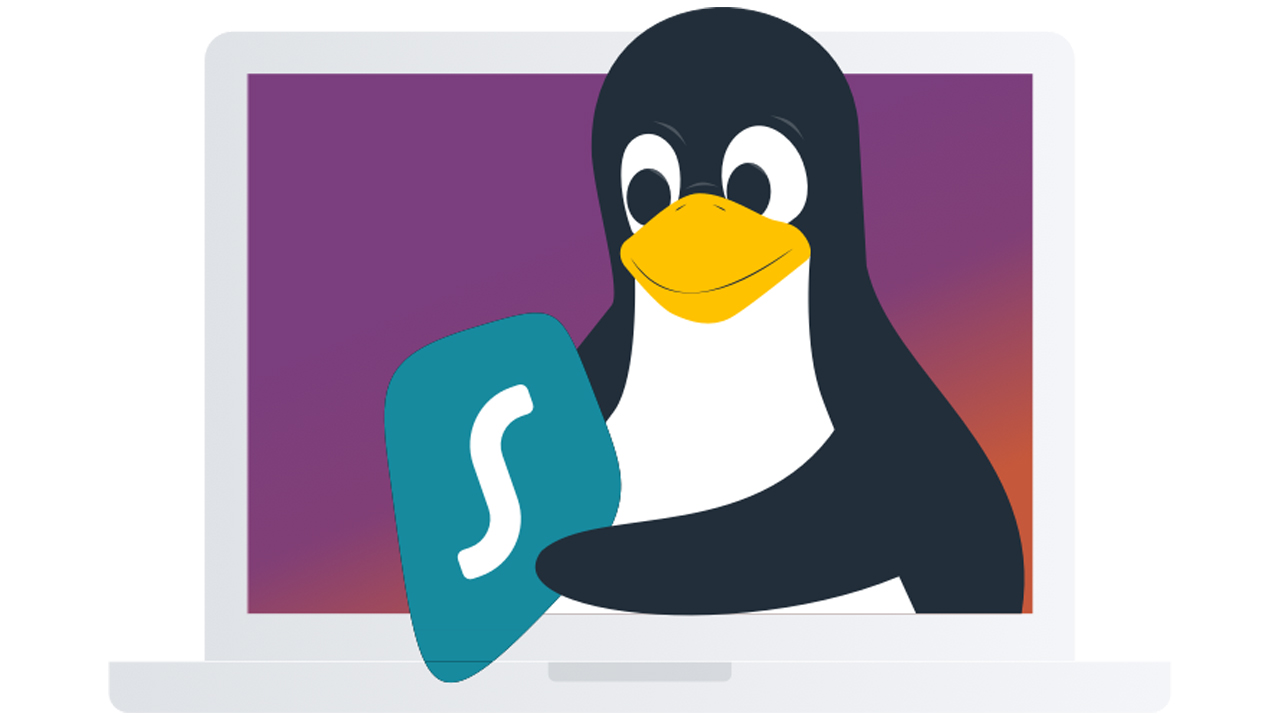
2. Surfshark
Incredible speeds at wallet-friendly prices
Number of servers: 3,200+ | Server locations: 160+ in 100+ countries | Maximum devices supported: Unlimited | Linux GUI: Yes
✔️ You have a lot of devices to protect. Thanks to unlimited simultaneous connections, one Surfshark account can cover any number of devices you want.
✔️ You want a speed demon. With top speeds of over 950 Mbps in my most recent testing, Surfshark tops my charts of the quickest VPNs.
✔️ You're on a tight budget. Surfshark has made using a Linux VPN affordable with a superb combo of high-end features and low prices that's hard for other services to match.
❌ You're a VPN pro. Surfshark is more geared towards beginners, which isn't necessarily a con, but it can be too simple for people who want lots of configuration.
❌ You're a hardcore torrenter. Although Surfshark is a decent torrenting VPN, it's not where it focuses its resources. I recommend PIA or ExpressVPN for this task.
Surfshark is my top recommendation for folks looking for an easy-to-use and affordable Linux VPN. Combined with best-in-class speeds, unlimited connections, and powerful unblocking, a sub-$2.50 price tag leaves almost nothing to dislike. Plus, you'll have ample time to try Surfshark out risk-free, thanks to a 30-day money-back guarantee.
Surfshark is a close runner-up to PIA when it comes to best VPNs for Linux devices. Like PIA, Surfshark also offers a fully functioning graphical user interface (GUI) on Linux distros, meaning installing and using the Surfshark VPN app on Linux is as simple as it is on any other OS.
Just having a GUI isn't the only reason it's in my top three, though – if it wasn't super secure and usable, I wouldn't be recommending it. Rock-solid AES-256 encryption and a kill switch keep your web traffic on Linux secure, and over 3,200 servers in 100 locations worldwide mean you'll have a vast range of countries to connect to for whatever purpose you desire.
Combined with an independently audited no-logs policy and RAM-only servers, you can rest assured that the company doesn't keep any logs of your activity, and even if authorities come knocking on its door, it won't have anything to show them. There’s also a handy Camouflage Mode that gives you VPN obfuscation, essentially hiding the fact you're using a VPN at all, and Surfshark’s CleanWeb blocks ads and malicious websites, ensuring a smooth and lag-free experience throughout.
In my latest Surfshark review, the Netherlands-based provider also topped my fastest VPN charts, delivering eye-watering speeds of around 950 Mbps when using WireGuard. It certainly won't be slowing you down whatever you're using it for. Another headline feature is its ability to cover an unlimited number of devices at once, which is handy if you have a house full of tech addicts.
For when you want your Linux VPN to double up as your entertainment unit, Surfshark will add to the flavor with its stellar unblocking capabilities. It unblocked everything I threw at it in my testing, from popular sites like Netflix, BBC iPlayer, and Disney Plus to even smaller libraries like 9Now and 10Play.
However, it’s worth noting that some features aren't available on Linux, with split tunneling being easily the biggest omission. Also, if you're a really advanced user, Surfshark could seem restrictive. For example, there's no port forwarding function available in the apps, and most of the settings are intended to be plug and play, rather than offering customization. At the same time, though, this is exactly what beginners might be after – a Linux VPN that works out of the box.
Last but not least, there’s simply no questioning Surfshark’s value for money. At less than $2.50 per month, it's one of the best cheap VPNs, making it a go-to choice for bargain hunters. Plus, its blazing speeds, unlimited connections, great security, and no-quibble unblocking mean that it’s just as good as any premium provider, if not better. You're also backed by a 30-day money-back guarantee, so you can test it without risking a single penny.
Feature | Comments | Rating |
|---|---|---|
Design | Intuitive and fun design, ideal for beginners | ⭐⭐⭐⭐⭐ |
Ease of use | Easy-to-navigate and simple apps for Linux and everything else too | ⭐⭐⭐⭐⭐ |
Performance | Seriously speedy connections | ⭐⭐⭐⭐⭐ |
Unblocking | Effortless access to every streaming site | ⭐⭐⭐⭐⭐ |
Security and privacy | Generally very secure, but there are minor kill switch issues on Windows | ⭐⭐⭐⭐ |
Customer support | Friendly 24/7 support with no shortage of helpful guides | ⭐⭐⭐⭐ |
Price | Excellent value, and much more affordable than the competition | ⭐⭐⭐⭐⭐ |
The best of the rest
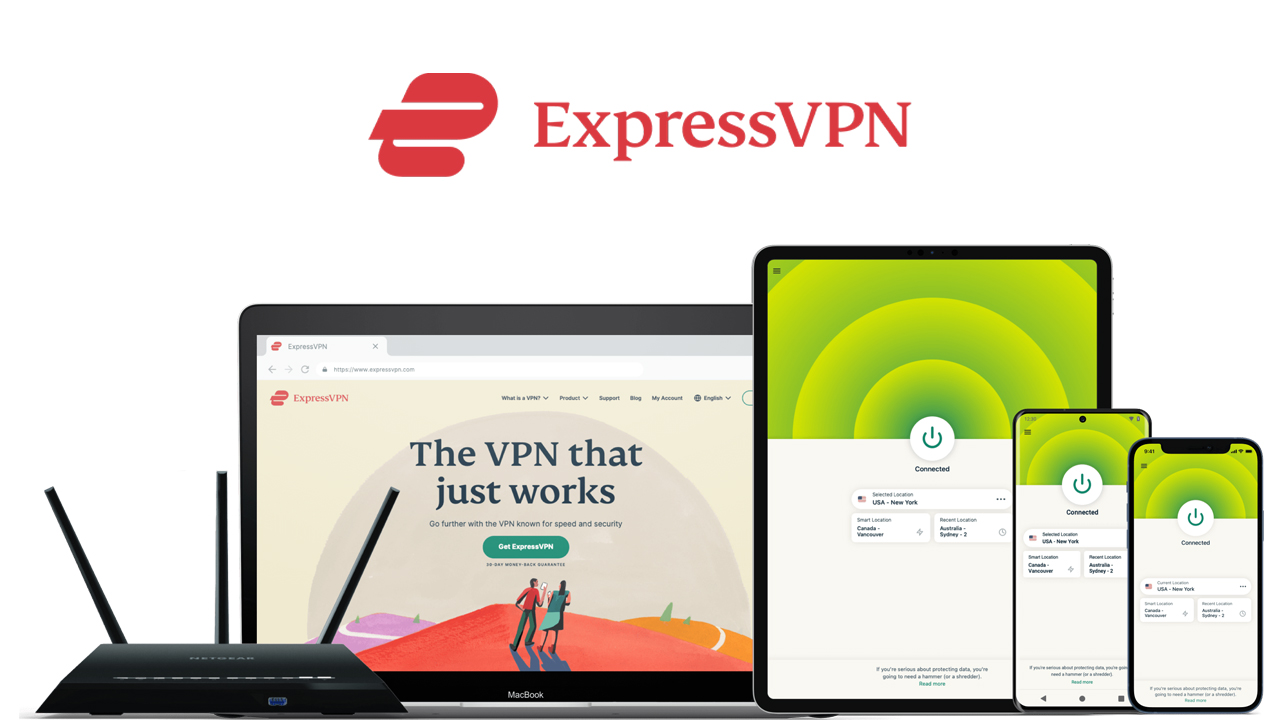
3. ExpressVPN
Seriously powerful, premium Linux VPN
Number of servers: 3,200+ | Server locations: 160 in 105 countries | Maximum devices supported: 8 | Linux GUI: No
✔️ You want access everywhere. With over 160 locations on offer, ExpressVPN is the gold standard for accessing geo-restricted content, no matter where you are.
✔️ You want a beginner-friendly VPN. ExpressVPN comes with simple apps (and browser extensions), auto-connect, 24/7 support, and an in-depth knowledge hub, making it a delight for first-time VPN users.
✔️ You want unquestionable privacy. ExpressVPN leads the pack when it comes to security, thanks to 256-bit AES encryption, countless audits, and extra tools like a password manager.
❌ You want a GUI for Linux. Even though you can install the browser extension for GUI support, ExpressVPN is certainly not as plug-and-play as other providers.
❌ You're on a budget. ExpressVPN delivers good value for its price, but services like Surfshark or PIA are better bargain picks.
ExpressVPN doesn't offer a GUI, but you can install the browser extension for a simple Linux experience. It's worth the extra effort since the provider is an industry leader for privacy, ease of use, and customer support, alongside offering a wide network of servers and exceptional unblocking. Try it out with a 30-day money-back guarantee.
ExpressVPN is one of the most trustworthy names in the space. I recommend it in almost all my VPN guides, and the provider is also one of the best VPNs for Linux. While the ExpressVPN Linux app doesn't have a complete GUI, there's an easy workaround: simply install the Chrome VPN or Firefox extension.
Unlike most browser VPNs, ExpressVPN's extension controls the app itself and has a graphical interface – not quite as easy as PIA or Surfshark, but close. The best part is that ExpressVPN comes with plenty of features for Linux, including a network kill switch that’s enabled by default. Plus, as one of the most secure VPNs, ExpressVPN also boasts AES-256 encryption, a verified no-logs policy, and additional tools such as a built-in password manager.
It's also good to see support for Express's proprietary Lightway protocol on Linux installations, and full compatibility with the company's tracker and malware-blocking Threat Manager is another huge plus for Linux users. The ExpressVPN Linux VPN app will automatically connect you to the geographically closest server (on just the tap of a button), but you can manually point it to connect through any of its servers in a whopping 160 locations in over 105 countries.
The provider also comes with powerful unblocking capabilities, and you'll be able to access every streaming site you want, including Netflix, Hulu, Prime Video, YouTube, and more. ExpressVPN isn't quite as quick as NordVPN and Surfshark, but top speeds of 750 Mbps are still around 30 times more than what's required for streaming in HD and online gaming.
A minor gripe I have with the service is its low number of simultaneous connections – just eight. While this could be a high enough number for individuals and small families, those exclusively looking for a VPN to cater to all their near and dear ones will be better off with Surfshark or PIA, which come with unlimited simultaneous connections.
The only real downside to ExpressVPN, though, is its cost, which is higher than almost all its top competitors. However, it more than makes up for that with its list of features and excellent privacy – and you also get three months of extra protection and a year’s worth of cloud storage for free on a 12-month subscription. Unsure? Put ExpressVPN to the test with a 30-day money-back guarantee and find out if it’s for you, risk-free.
Feature | Comments | Rating |
|---|---|---|
Design | Simple and minimalistic design, and everything is easy to find and understand | ⭐⭐⭐⭐⭐ |
Ease of use | Both beginners and seasoned VPN users will have plenty to adore | ⭐⭐⭐⭐⭐ |
Performance | Fast enough for every single use case, including torrenting and gaming | ⭐⭐⭐⭐ |
Unblocking | Powerful unblocking, and you'll enjoy unrestricted access everywhere | ⭐⭐⭐⭐⭐ |
Security and privacy | Strong encryption, countless audits, and security add-ons to top it all off | ⭐⭐⭐⭐⭐ |
Customer support | Friendly 24/7 support with no shortage of helpful guides | ⭐⭐⭐⭐⭐ |
Price | More expensive than almost every other service | ⭐⭐⭐ |

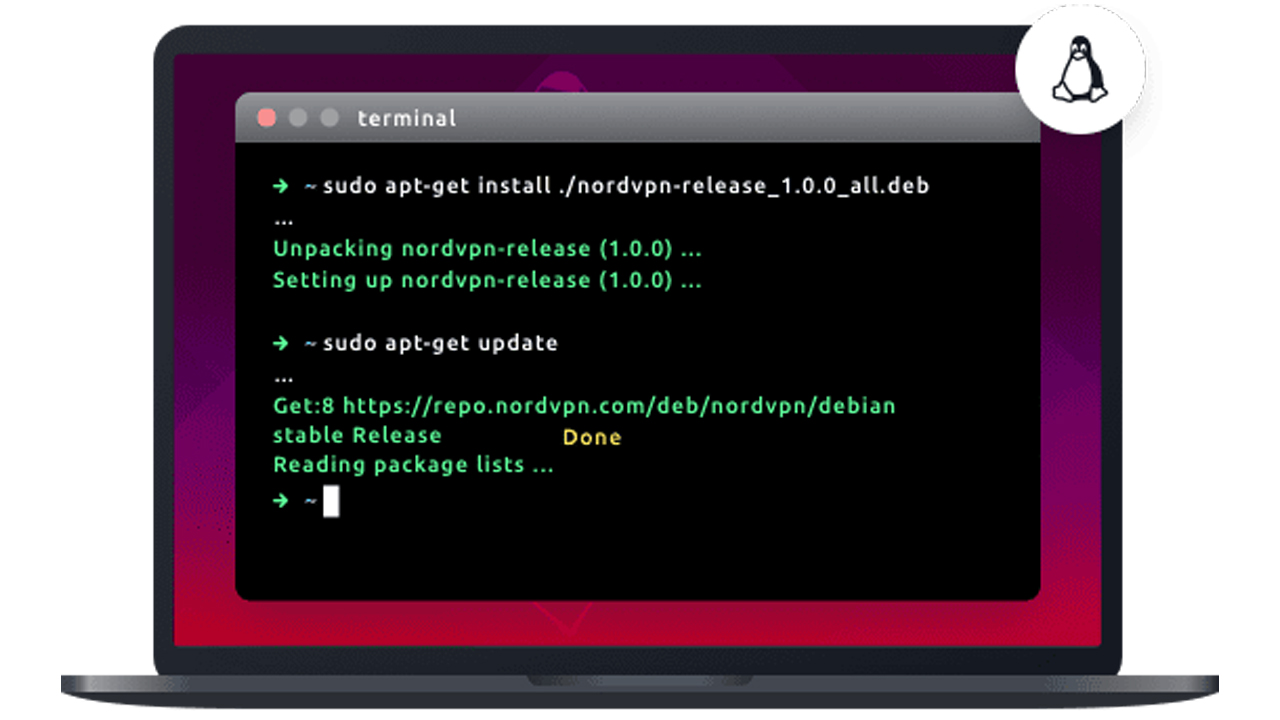
4. NordVPN
All-around security and unbeatable performance
Number of servers: 6,400+ | Server locations: 140 in 111 countries | Maximum devices supported: 10 | Linux GUI: No
✔️ You want excellent streaming support. NordVPN is undefeated with when it comes to bypassing geo-restrictions on streaming sites, and it'll give you effortless access everywhere.
✔️ You want comprehensive security. As perhaps the most well-rounded solution for internet security, Nord comes with built-in antivirus, password manager, and ad and tracking blockers.
✔️ You need a VPN that's fast. With peak speeds of over 950 Mbps, NordVPN is the quickest service I’ve tested.
❌ You want a GUI on Linux. While Nord's an extremely capable VPN, you'll have to make do with a command line interface on Linux.
❌ You want to torrent on Linux. NordVPN doesn’t have the goods to be a solid torrenting option, especially when compared to the likes of PIA and ExpressVPN.
NordVPN offers class-leading speeds and streaming performance, and extras like a built-in antivirus and blockers for ad, phishing attacks, and trackers make it a full-fledged cybersecurity solution. This, and a 30-day money-back guarantee, might be enough to look past its lack of a GUI on Linux.
The best VPN service overall, NordVPN, comes jam-packed with features on its Linux client – so much so that it almost makes up for the lack of a GUI. In my NordVPN review, I mention how useful the Double VPN feature is, as it routes your traffic through two different VPN servers, encrypting your data twice. There's also a nifty Onion over VPN feature that gives you access to the very secure Tor network without having to download the Tor browser.
Nord is also one of the very few providers to come with a built-in antivirus, a data breach scanner, and a password manager for all-around protection. This, alongside rock-solid essentials like an intuitive kill switch, split tunneling, and an independently audited zero-logging policy, makes Nord one of the most sought-after VPNs for security. What's more, the latest Nord Threat Protection Pro can now protect your Linux device from all kinds of cyber threats, including phishing attacks, web tracking, and malware.
NordVPN's Linux version also supports its free Meshnet feature, using which you can set up a private network with up to 60 devices – all of which will enjoy an encrypted NordVPN connection – to securely and speedily share files, play local co-op and multiplayer games, and collaborate with your work buddies.
A service that delivers on every single count, NordVPN is also the speediest VPN right now, clocking in at a breathtaking 950 Mbps in my most recent speed tests. Fast and consistent speeds in tandem with class-leading unblocking capabilities and over 6,100 servers in total make NordVPN a go-to choice for streaming heads as well. As the best Netflix VPN, Nord is able to bypass even the most strict geo-restrictions and give you access to your favorite movies and TV shows regardless of the streaming site and your location.
Besides Linux, NordVPN also offers straightforward apps for almost every platform you can think of, whether that's Android, iOS, Mac, Windows, Chromebook, or Fire TV. However, I've found that its map-style interface is a little tricky to use on devices with smaller screens, such as smartphones.
All in all, the bottom line is that while NordVPN asks you to be content with a command-line interface, it's, quite frankly, the most complete product on the market, with industry-leading speeds, unblocking, and security – and at $3.09 a month, Nord's also very reasonably priced. Even better, you can take a risk-free trial of the service, thanks to a 30-day money-back guarantee.
Feature | Comments | Rating |
|---|---|---|
Design | Intuitive design, but a little less clutter would be nice | ⭐⭐⭐⭐ |
Ease of use | The map-style interface isn't the easiest to use, but everything else works perfectly well | ⭐⭐⭐⭐ |
Performance | Mind-blowing speeds, on par with Surfshark | ⭐⭐⭐⭐⭐ |
Unblocking | Unrivaled unblocking, whether that's Netflix or local content | ⭐⭐⭐⭐⭐ |
Security and privacy | Audited no-logs policy and Threat Protection Pro make it a complete security package | ⭐⭐⭐⭐⭐ |
Customer support | 24/7 assistance by knowledgeable experts and lots of technical guides | ⭐⭐⭐⭐⭐ |
Price | Delivers excellent value for its asking price | ⭐⭐⭐⭐ |

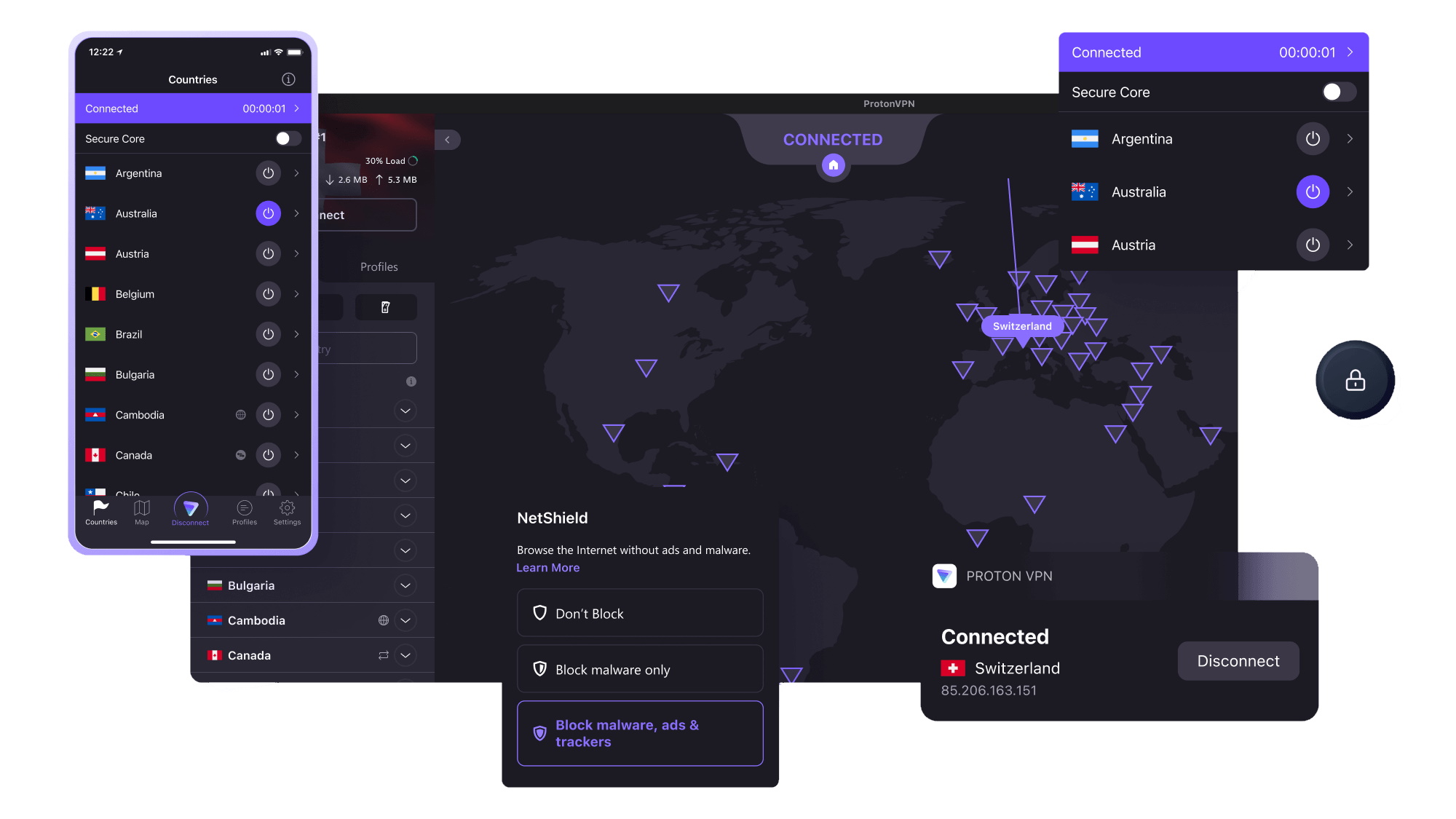
5. Proton VPN
Swiss security through and through
Number of servers: 5,200+ | Server locations: 119 in 91 countries | Maximum devices supported: 10 | Linux GUI: Yes
✔️ You want an ultra-secure Linux VPN. With Secure Core servers, open-source apps, Swiss privacy laws, and a GUI, Proton is in the upper echelon of secure VPNs for Linux.
✔️ You want a free Linux VPN. Proton VPN has a fully functional free version for Linux devices, offering unlimited data and access to independent news from Deutsche Welle.
✔️ You want powerful unblocking. Proton unblocks every major and local streaming site without any fuss.
❌ You're on a budget. Proton VPN is on the expensive side of things, and those pinching for pennies will be better off with Surfshark or PIA.
❌ You want to stream for free. Proton's free plan is superb for normal usage, but it doesn't come with any unblocking capabilities, which are reserved for users of the Plus plan.
Proton VPN is a highly secure Linux VPN, thanks to open-source apps, a clear privacy policy, and an always-on VPN feature for 24/7 protection. It's also an excellent free Linux VPN, but if you want a taste of its full potential, try its premium plan risk-free with a 30-day money-back guarantee.
Proton VPN is well-known, first and foremost, for being one of the most secure VPNs, but it's a mighty impressive Linux VPN, too. For starters, it comes with an intuitive GUI for almost every Linux derivative, including Ubuntu, Manjaro, Debian, Mint, MX Linux, Kali Linux, and Elementary OS. This instantly makes Proton VPN better than other providers that only offer a CLI.
Combined with an independently audited no-logs policy and an always-on VPN feature, Proton VPN also offers the highest level of privacy you'll find in a Linux VPN. Like PIA, Proton VPN too offers open-source apps for Linux and other devices. Plus, the company is based out of Switzerland, a country outside EU and US jurisdictions and one that's not a part of the Five Eyes Alliance for surveillance.
I'm also happy to report that Proton VPN now offers Secure Core on its Linux app, which it previously didn't. This is a handy feature to have if you're in a privacy-invasive region, like China, Russia, or Turkey, as it routes your connection through a super secure server in either Iceland, Switzerland, or Sweden before finally connecting you to your location of choice. Another standout includes Proton's in-house ad, malware, and tracker-blocking tech.
While providers like TorGuard don't make their free VPNs available to Linux users, Proton VPN does no such thing – you'll be able to use it on Linux, free of charge, and enjoy access to 3 locations, unlimited bandwidth and data, and an ad-free online experience. Furthermore, Proton VPN believes in online freedom, and it walks the talk by having teamed up with Deutsche Welle, a German news company, to allow users access to independent and trustworthy news anywhere in the world.
It's worth noting that Proton's free plan doesn't come with unblocking capabilities. In my full Proton VPN review, however, I mention that it's worth upgrading to one of its paid plans, as it not only unblocks all Netflix locations, including hard-to-crack countries like Japan, and other services like Disney+, Prime Video, Hulu, and YouTube, but it also puts every corner of the world within arm's reach, thanks to its wide network of over 5,200 servers in 91 countries.
While it isn't the most affordable of the lot, Proton VPN is a service that keeps improving, whether that's through adding more servers in its kitty or cranking up its top speeds to now be on par with the likes of Surfshark. With a 30-day money-back guarantee backing you up – and, of course, a limited free plan serving as an unlimited trial – Proton VPN is well worth a look if you're a privacy purist shopping for reliability.
Feature | Comments | Rating |
|---|---|---|
Design | Dynamic and fun design with the dark mode as a standout | ⭐⭐⭐⭐ |
Ease of use | GUI for Linux and straightforward mobile apps, but some desktop features are slightly complicated | ⭐⭐⭐ |
Performance | One of the fastest providers right now | ⭐⭐⭐⭐⭐ |
Unblocking | Powerful unblocking and goes past every streaming platform with ease | ⭐⭐⭐⭐ |
Security and privacy | Secure Core servers, open-source apps, and Swiss privacy laws give complete peace of mind | ⭐⭐⭐⭐⭐ |
Customer support | 24/7 support by friendly agents and tons of helpful guides | ⭐⭐⭐⭐ |
Price | Quite expensive when compared to those around it, but the free plan packs a punch | ⭐⭐⭐⭐ |
How to pick a Linux VPN
Deciding on the right VPN for Linux that fits your needs can be a little trickier than it's on some other operating systems due to the fact that there's quite significant variation in products.
The biggest factor on Linux will be whether you absolutely require a graphical user interface (GUI). In short, a GUI is what most other computer users would call an app – it's the face of the program that you use to control it. Without a GUI, you'll have to use the command line, which can take longer, and prove difficult for the uninitiated.
If you need a GUI, that rules out a lot of providers. However, top-rated VPNs like Surfshark and PIA do offer a GUI on Linux, so these should be you top considerations. Beyond that, it's worth considering other factors like:
- Privacy: the VPN you choose must be super-secure and come with a clear-cut no-logs policy, a reliable kill switch, leak protection, and support for the most secure protocols, even on Linux.
- Speed: fast connection speeds will help you stream, game, and/or torrent without any buffering, glitches, or lag. If you’re after the fastest of the pack, consider getting Surfshark or NordVPN. Even Proton VPN (has a GUI) is speedy enough.
- Streaming: a good streaming VPN has lots of servers and excellent unblocking capabilities. It should effortlessly unblock popular streaming platforms, like Netflix, Prime Video, Disney Plus, and BBC iPlayer, as well as other sites you wish to access.
- Ease of use: simple and similar apps across various device types are highly recommended, especially for beginners. Plus, strong customer support with a comprehensive set of help articles will ensure a smooth experience.
- Cost: the price of the VPN provider plays a crucial role, too. At the same time, it's important to note that you'll be much better off with a cheap VPN rather than a free service that's almost always stripped off important features.
How we test Linux VPNs
We start off by combing through the provider's website, where we take a close look at its privacy policy, headline features such as how many servers it handles globally, where they are, support options, and if it uses tracking cookies on its site.
Next, we download the VPN's apps on various device types, including Linux, and test them rigorously. We evaluate all key features, such as the kill switch, split tunneling, port forwarding, and double encryption, as well as the app's ease of use – we make sure that the GUI on Linux (if there is one) is as functional as it should be.
Then we shift our attention to the provider's unblocking capabilities. For this, we try to unblock different streaming sites, such as Netflix, Prime Video, Disney Plus, and BBC iPlayer, from different locations around the world.
Speed is another important testing criteria for us, and we test the VPN's speed at least 120 times from two location (a US location and a UK data center) for accurate results. An important part of our VPN testing process at Tom's Guide is re-reviewing and testing the top VPNs every six months or so to ensure we only recommend the best products.
Linux VPN FAQs
What is the best VPN to use in Linux?
All things considered, if I had to pick one outright, I’d go with Private Internet Access. With a comprehensive GUI, robust security features, and a massive network of servers, it's perfectly suited to Linux. Plus, you get unlimited simultaneous connections, powerful unblocking, and great torrenting performance – and at less than $2 a month, it's an absolute bargain too.
Does Linux have a built-in VPN?
No, Linux does not come with a VPN built-in, but some Linux distros do offer support for VPN protocols, such as OpenVPN and WireGuard. However, the simplest way to set up a VPN on Linux is to find a VPN provider that offers a dedicated Linux VPN app – look for one with a GUI if ease of use is important to you.
Should I use a free VPN on Linux?
If you look hard enough, you’ll stumble upon a VPN service that’ll tempt you with a free offering. However, the risks of using such an offering far outweigh the merits of saving a couple of dollars a month – yep, the best cheap VPNs are that affordable.
For starters, these free services will definitely be a lot slower than any paid service. Forget streaming content too, and you might not even be able to enjoy a pleasant browsing experience with them – think ads and annoying pop-ups.
On top of it, there will almost certainly be a cap on the bandwidth with a no-fee VPN, which will be set to such a low level so as to make the service unusable for any practical purposes.
Another major cause of concern with free services are their privacy policies or lack thereof. They are not free from the goodness of their hearts, and have to make money somehow. Collecting and hawking your private data is one of the most common ploys.
We test and review VPN services in the context of legal recreational uses. For example:
1. Accessing a service from another country (subject to the terms and conditions of that service).
2. Protecting your online security and strengthening your online privacy when abroad.
We do not support or condone the illegal or malicious use of VPN services. Consuming pirated content that is paid-for is neither endorsed nor approved by Future Publishing.
Get instant access to breaking news, the hottest reviews, great deals and helpful tips.

Krishi is a VPN writer covering buying guides, how-to's, and other cybersecurity content here at Tom's Guide. His expertise lies in reviewing products and software, from VPNs, online browsers, and antivirus solutions to smartphones and laptops. As a tech fanatic, Krishi also loves writing about the latest happenings in the world of cybersecurity, AI, and software.
